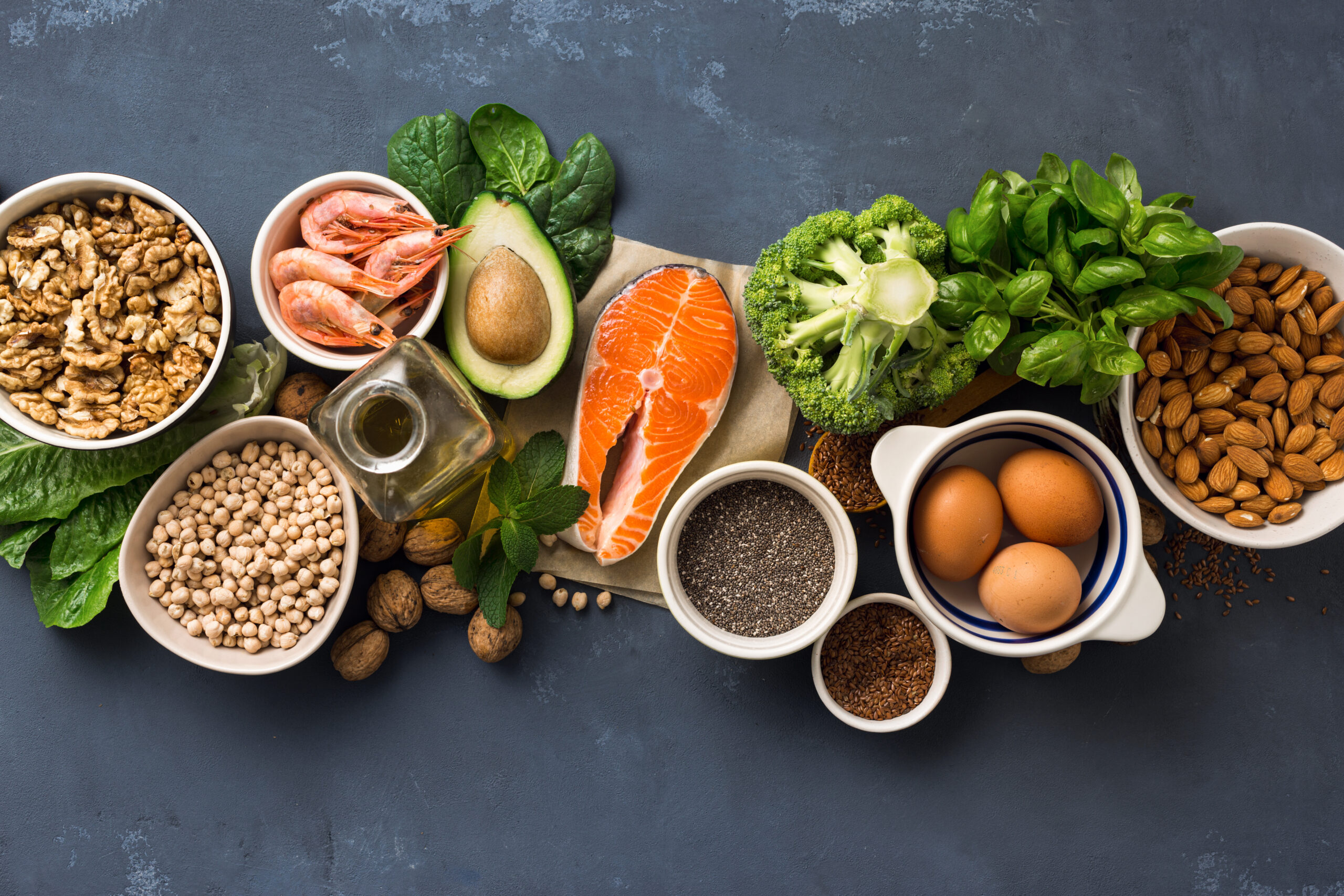
The Comprehensive Guide to the Benefits of Vegan Omega-3 Fatty Acids
Introduction
Omega-3 fatty acids are essential for overall health and well-being, but it’s not necessary to consume fish or fish oil to obtain these critical nutrients. For those following a vegan lifestyle, there are plenty of plant-based sources of omega-3s available. In this comprehensive guide, we’ll explore the numerous benefits of vegan omega-3 fatty acids, the various plant-based sources, and how to ensure you’re meeting your nutritional needs while avoiding animal products.
Understanding Vegan Omega-3 Fatty Acids
Omega-3 fatty acids, specifically alpha-linolenic acid (ALA), are a type of polyunsaturated fat found primarily in plant-based sources. Unlike their marine counterparts (eicosapentaenoic acid, EPA, and docosahexaenoic acid, DHA), ALA is the main omega-3 fatty acid in plant foods. Although ALA is not as potent as EPA and DHA, it can be converted in the body to provide essential omega-3 benefits.
The Role of Vegan Omega-3 Fatty Acids in the Body
Cardiovascular Health
Omega-3 fatty acids play a crucial role in cardiovascular health, irrespective of whether they come from marine or vegan sources. Vegan omega-3s, particularly ALA, are known to lower the risk of heart disease by reducing triglycerides, improving blood vessel function, and decreasing inflammation.
Brain Function and Cognitive Health
Vegan omega-3 fatty acids, particularly ALA, are essential for brain development and function. They support cognitive function, memory, and mental clarity, and may also lower the risk of cognitive decline in older adults.
Inflammation and Immune System
Inflammation is a common denominator in various diseases, including arthritis and autoimmune conditions. Vegan omega-3s can help reduce chronic inflammation and bolster the immune system, enhancing the body’s ability to fight off infections and illnesses.
Mood and Mental Health
Emerging research suggests that vegan omega-3 fatty acids can contribute to better mental health. They may help manage depression, anxiety, and other mood disorders, providing a natural, plant-based approach to mental well-being.
Joint Health
Vegan omega-3s may alleviate joint pain and stiffness, particularly in individuals with inflammatory joint conditions like rheumatoid arthritis. Their anti-inflammatory properties can provide relief to those with joint discomfort.
Eye Health
Although vegan omega-3 sources mainly provide ALA, which is not as directly related to eye health as DHA found in marine sources, these plant-based omega-3s can still offer some protective benefits for eye health.
Common Sources of Vegan Omega-3 Fatty Acids
Flaxseeds
Flaxseeds are a rich source of ALA, making them one of the top choices for vegans seeking to boost their omega-3 intake. Ground flaxseeds can be easily added to smoothies, oatmeal, or baked goods.
Chia Seeds
Chia seeds are another excellent source of ALA. They have a gel-like texture when mixed with liquid, making them a versatile ingredient in recipes, such as puddings and beverages.
Hemp Seeds
Hemp seeds contain a good amount of ALA and are a protein-rich option for vegans. They can be sprinkled on salads, yogurt, or blended into smoothies.
Walnuts
Walnuts are not only a tasty snack but also a source of ALA. Including walnuts in your diet is a convenient way to boost your omega-3 intake.
Canola Oil
Canola oil is an oil rich in ALA and can be used for cooking, dressings, and baking. It provides an omega-3 boost in your culinary endeavors.
Algal Oil Supplements
While not a whole food source, algal oil supplements offer a direct source of DHA derived from algae. These supplements can be an essential addition to a vegan diet, especially for those concerned about DHA intake.
Signs of Omega-3 Deficiency in Vegans
Vegans should be aware of the signs of omega-3 deficiency to address potential health concerns. Common symptoms may include:
Dry Skin
Dry, flaky, or itchy skin may be an indication of an omega-3 deficiency. Omega-3 fatty acids help maintain skin moisture and integrity.
Joint Pain
Joint pain and stiffness can be exacerbated by a lack of omega-3s. Including more vegan sources in your diet might help alleviate discomfort.
Cognitive Issues
Poor memory, difficulty concentrating, and mental fogginess could be a sign of an omega-3 deficiency. Vegan omega-3 sources are vital for brain function and cognitive health.
Mood Disorders
Depression, anxiety, and mood swings may be influenced by a lack of omega-3s. Supplementing with vegan sources may help manage these conditions.
Elevated Triglycerides
High triglyceride levels can be associated with insufficient omega-3 intake and may be a concern for vegans. Ensuring adequate omega-3 intake can help regulate these levels.
Health Benefits of Vegan Omega-3 Fatty Acids
Cardiovascular Health
Vegan omega-3 fatty acids, particularly ALA, offer substantial cardiovascular benefits. Research has shown that ALA can lower the risk of heart disease by reducing triglycerides, improving blood vessel function, and decreasing inflammation. These effects contribute to overall heart health.
Brain Function and Cognitive Health
Omega-3 fatty acids are integral to maintaining brain health. Vegan omega-3s, primarily ALA, play a crucial role in brain development and cognitive function. They support memory, concentration, and mental clarity, and may even lower the risk of age-related cognitive decline.
Inflammation and Immune System Support
Vegan omega-3 fatty acids, such as ALA, possess anti-inflammatory properties that can help reduce chronic inflammation, a common factor in many diseases. Additionally, they enhance immune system function, strengthening the body’s ability to fight off infections and illnesses.
Mood and Mental Health
Emerging research suggests that vegan omega-3s, specifically ALA, may help manage depression, anxiety, and other mood disorders. While more research is needed in this area, including these plant-based sources in the diet can be a valuable part of mental health management.
Joint Health
Vegan omega-3s have demonstrated their ability to reduce joint pain and stiffness, particularly in individuals with inflammatory joint conditions like rheumatoid arthritis. Their anti-inflammatory properties can provide relief to those experiencing joint discomfort.
Eye Health
While vegan omega-3 sources primarily provide ALA, which is not directly related to eye health like DHA, they can still offer some protective benefits for eye health. Omega-3s contribute to overall well-being, which can indirectly support eye health.
Incorporating Vegan Omega-3 Fatty Acids into Your Diet
As a vegan, incorporating omega-3-rich foods into your diet is essential for maintaining optimal health. Here are practical tips for doing so:
Flaxseeds and Chia Seeds
Include ground flaxseeds or chia seeds in your daily meals. Sprinkle them on cereals, add them to smoothies, or use them as egg substitutes in baking.
Walnuts
Snack on walnuts or add them to your salads and oatmeal for an omega-3 boost.
Hemp Seeds
Use hemp seeds as a topping for yogurt, cere
als, or salads to increase your omega-3 intake.
Canola Oil
Cook with canola oil for sautéing, frying, and baking. It’s a convenient way to incorporate omega-3s into your favorite recipes.
Algal Oil Supplements
Consider adding algal oil supplements to your daily routine. These supplements provide a direct source of DHA, an essential omega-3 fatty acid.
Vegan Omega-3 Foods
Explore vegan omega-3-rich foods like seaweed and seaweed-based products, as they can be excellent sources of EPA and DHA.
Conclusion
Vegan omega-3 fatty acids are a valuable part of a plant-based diet, offering numerous health benefits. These essential fats are essential for maintaining cardiovascular health, supporting brain function, reducing inflammation, enhancing mood and mental health, promoting joint health, and preserving eye health. Recognizing the signs of omega-3 deficiency is crucial for ensuring optimal well-being.
By incorporating vegan omega-3-rich foods into your diet and considering supplements when necessary, you can harness the full spectrum of health benefits that these essential fatty acids provide. It’s advisable to consult with a healthcare professional before making significant dietary changes or incorporating supplements, especially if you have underlying health conditions or are taking medications. With a thoughtful approach, you can unlock the incredible power of vegan omega-3 fatty acids to improve your health, whether you follow a plant-based lifestyle or are simply looking for healthier dietary choices.
[email protected]
- Benefits of Chaga Functional Mushrooms: A Comprehensive Guide - October 17, 2023
- A Comprehensive Guide to the Best Delta-10 THC Vapes - October 17, 2023
- The Comprehensive Guide to the Benefits of Vegan Omega-3 Fatty Acids - October 16, 2023


